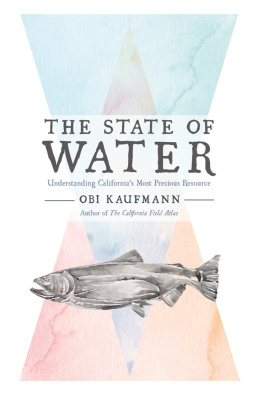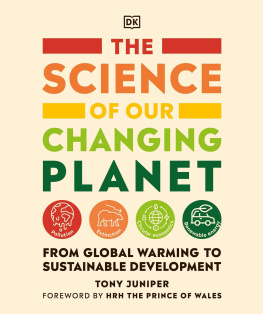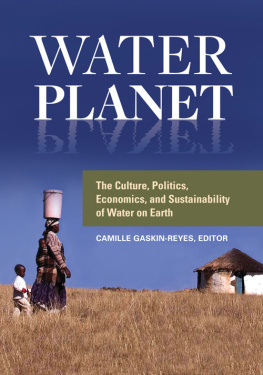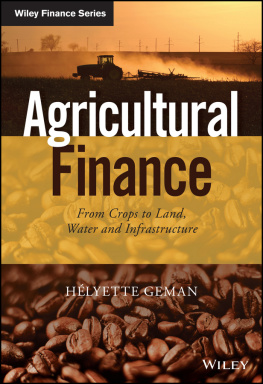RAMEZ NAAM
the infinite resource
the power of ideas on a finite planet
University Press of New England | Hanover and London
University Press of New England
www.upne.com
2013 Ramez Naam
All rights reserved
Manufactured in the United States of America
Designed by Mindy Basinger Hill
Typeset in Minion Pro
University Press of New England is a member of the Green Press Initiative. The paper used in this book meets their minimum requirement for recycled paper.
For permission to reproduce any of the material in this book, contact Permissions, University Press of New England, One Court Street, Suite 250, Lebanon NH 03766; or visit www.upne.com
Library of Congress Cataloging-in-Publication Data
Naam, Ramez.
The infinite resource : the power of ideas on
a finite planet / Ramez Naam.
p. cm.
Includes bibliographical references and index.
ISBN 9781611682557 (cloth : alk. paper)
ISBN 9781611683769 (ebook)
1. Renewable natural resources.
2. Natural resources. 3. Sustainable development.
4. Conservation of natural resources. I. Title.
HC 85. N 32 2013
333.7dc23 2012026803
5 4 3 2 1
contents
preface a tale of
two planets
It was the best of times, it was the worst of times. The opening line of Charles Dickenss 1859 masterpiece, A Tale of Two Cities applies equally well to our present era. We live in unprecedented wealth and comfort, with capabilities undreamt of in previous ages. We live in a world facing unprecedented global risksrisks to our continued prosperity, to our survival, and to the health of our planet itself. We might think of our current situation as A Tale of Two Earths.
This is a story about these two conflicting realities of our present day. The core argument of this book is that the force thats propelled us to our present well-being is also the most powerful resource we have to tackle our future challenges: innovation. If we tap into and direct that force correctly, we have the very real potential to lift global wealth and well-being while reducing our impact on the planet and even reversing the damage weve done. If we fail to tap into that force, we flirt with the very real prospect of disaster.
Exceptional claims demand exceptional evidence. Im claiming in this book that its possible for humanity to live in higher numbers than today, in far greater wealth, comfort, and prosperity, with far less destructive impact on the planet than we have today. Im claiming that raw energy, materials, and the other resources we need to survive are plentiful on Earth and limited primarily by our understanding of how to collect, harness, and efficiently use them. Im claiming that in the midst of this abundance of matter and energy the most valuable resource we have and that we have ever had is the sum of our human knowledgeour comprehension of how the universe around us functions and how to manipulate it to our ends. Im claiming that if we act quickly enough and decisively enough, we can have our cake and eat it tooa healthy thriving planet, and a human civilization of ever-growing wealth. These propositions are at odds with the prevailing wisdom that energy or land or oil or fresh water are our most precious resources, that their finite nature and growing scarcity place fairly imminent caps on the size, wealth, and sophistication of human society, and that living sustainably on this planet necessarily means living more modestly and accepting slower or even halted economic growth.
To back those claims up, Ill show how new ideas have overcome physical resource limitations again and again in the past. Ill show how our progress in science and technology have the potential to leapfrog us past our current challenges of energy, climate, water, food, minerals, and other resources. And Ill show how high the true limits on this planet are.
Just because something is possible doesnt mean that it will come to be. While its possible for us to grow our numbers and our wealth while preserving and repairing our planet, theres no guarantee that well do so. The problems we face are very real. In the face of similar challenges, some societies in the past have crumbled. Others have prevailed. Ill show in this book that what separates the cultures that have thrived from those that have stagnated or declined is the choices they made. Those choices guided different cultures rates of innovation, guided their usage of resources around them, and ultimately determined their fates. If we want to overcome the looming challenges that face us, we need to make the right choices ourselves. We need to innovate not only in science and technology, but also in the economic system that governs resource usage and motivates innovation. Ill show what those needed changes are and how to make them in ways that enrich us and enrich our planet.
We stand poised between an unimaginably better world and an unimaginably worse one. Which world the future holds is largely up to us.
In that spirit, Ill close this preface with a few more words from Dickens that I think aptly capture our current situation.
It was the best of times, it was the worst of times,
it was the age of wisdom, it was the age of foolishness,
it was the epoch of belief, it was the epoch of incredulity,
it was the season of Light, it was the season of Darkness,
it was the spring of hope, it was the winter of despair,
we had everything before us, we had nothing before us,
we were all going direct to heaven, we were all going direct the other wayin short, the period was so far like the present period, that some of its noisiest authorities insisted on its being received, for good or for evil, in the superlative degree of comparison only.
R.N.
part one
the best of times
one the rise of innovation
In the fall of 2008, three friends and I traveled with our bicycles to Vietnam. We planned to bike down a few hundred miles of the countrys scenic coast. Wed heard that Vietnam was a beautiful place, remarkably friendly to Americans, considering the history between the two countries. The image in our minds was of rice paddies, dirt roads, and of local Vietnamese riding bicycles to get from one place to another. The vacation was lovely, but things werent quite as we expected. The coastal road wasnt dirt any moreit was a modern highway, flush with traffic of all sorts, and entirely paved except for one short stretch under construction. And while we thoroughly enjoyed bicycling in Vietnam, we didnt see many others doing the same. In fact, the only other people on bicycles we encountered were young school children, who consistently said hello! and practiced their English on us, and a lone Japanese tourist riding his bike in the other direction. The roads were full of Vietnamese on scooters and in cars and trucks. Everywhere we went, from the biggest cities to the smallest towns, the streets were full of people with cell phones. Every town had its share of buildings under construction. Our vision of Vietnam as a quaint place full of poor farmers was out of date. The world had moved on. The Vietnamese were growing richer.

I was born in Egypt, in 1973. In 1976, in one of the most important events of my life, I came with my parents to the United States. The trip was originally intended to last just a few years, long enough for my mother to complete her studies for a PhD in physiology, and then we would return to Egypt, where she was to teach. Instead, my parents recognized the obviousthat the United States was a far superior place to live, work, and raise a childand they embarked on a ten-year process of seeking permanent immigration to the United States. Ultimately they succeeded. We would stay here. I would become a U.S. citizen rather than returning to live in Egypt.
Next page






